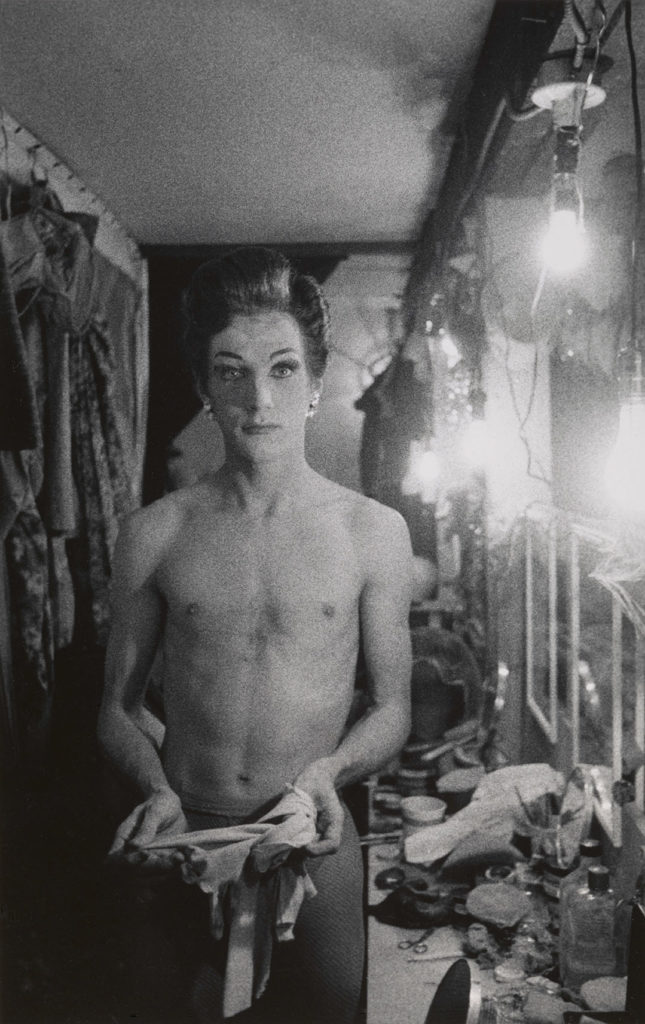Opinion
Diane Arbus Captured the Depths Below Camp Surfaces
THE DAILY PIC: The early Arbus shots at the Met Breuer raise gender issues, for her and us.

THE DAILY PIC: The early Arbus shots at the Met Breuer raise gender issues, for her and us.

Blake Gopnik

THE DAILY PIC (#1632): This is a photo called Female impersonator holding long gloves, Hempstead, L.I. 1959, shot by Diane Arbus at the very beginning of her career as a serious art photographer, after she’d left behind her work in fashion. It is from the survey of such early work called “Diane Arbus: In The Beginning,” at the new Met Breuer in New York.
A lot of images in the show treat gender issues, either more or less explicitly. I think that’s because Arbus is coming out of an American moment when the culture of camp, and the gay community that owned it, were seen to be on the cutting edge. As the Times said in a big feature on the subject, as late as 1965 all of New York (or at least its middlebrow middle class) was “abuzz about camp.”
There’s straight-ahead camp in the Arbus show, worthy of Warhol in the 1950s – photos of a Mood Meter Machine in a penny arcade and of Jack Dracula, a tattooed man who worked circuses and sideshows. But since her photos come late in that tradition, at least as practiced by its cognoscenti, the surface style of camp culture has often been stripped away to get at the identity troubles – and liberations – that lay beneath it. The 1961 shot titled Miss Stormé de Larverie, the Lady Who Appears to Be A Gentleman, is a wonderfully uneditorialized, un-camp image of a butch woman of color; today’s Pic, although recording a performer who no doubt himself camped it up, presents him as just another person getting ready for work, at home in his multiple skins.
An artist friend of mine with a tomboy bent says that whenever she wears a skirt or a dress she feels as though she’s in drag; she’d go so far as to say that assuming a fully feminine persona and its wardrobe is itself a kind of drag that all women are trained to put on from an early age.
After years of work in, and simultaneous estrangement from, the fashion industry, with its extremes of feminine identity, Arbus might have felt some sympathy with my friend’s ideas. I have a feeling that the very act of taking up a camera and going where she wasn’t supposed to – strip clubs, circuses, slums – put Arbus in a male role that called her own gender and its norms into question. She was forced to live the disjunctions that are hidden under camp’s chipper surfaces; her first art photos are about them, even sometimes when they don’t seem to be.
(©The Estate of Diane Arbus, LLC. All Rights Reserved)
For a full survey of past Daily Pics visit blakegopnik.com/archive.